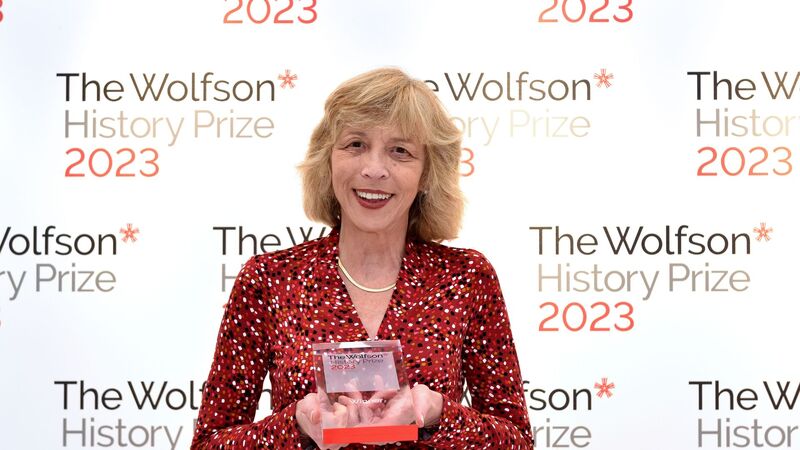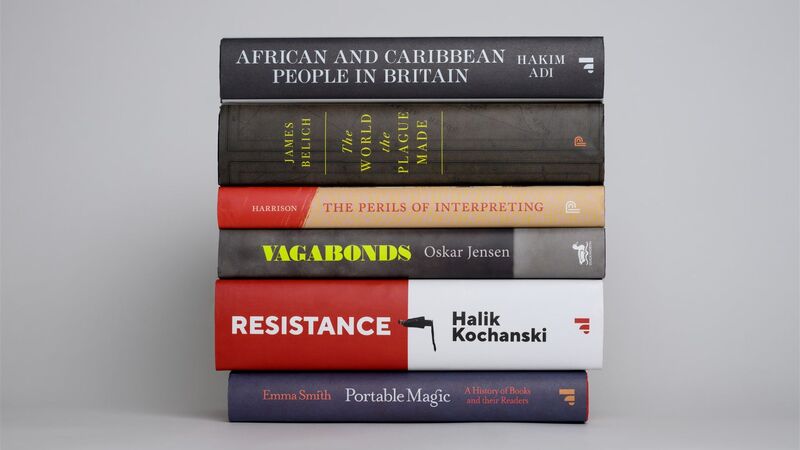You are viewing your 1 free article this month. Login to read more articles.
Wolfson History Prize pot raised to £60k
The Wolfson History Prize has appointed Sir David Cannadine, dodge professor of history at Princeton, as the chair of judges for this year’s award, and increased its prize money to a combined £60,000 (raised from £50,000 last year), split between two winners.
The annual prize has been running since 1972 and is among the most prestigious literary prizes in the UK. The two winners of the 2015 gong will be announced on 15th June, at a ceremony held at Claridge’s in central London.
Paul Ramsbottom, chief executive of the Wolfson Foundation, which funds the prize, says its focus is on celebrating “fabulous history, well researched, at the highest level of academic and scholarly writing”, with an emphasis on readability, adding that past winners have been “something you could take on holiday”. He said the aim was to “celebrate history and this country’s fabulous wealth of writing on the past”.
The increased prize fund—a larger amount than the Man Booker Prize and the Costa Book of the Year—“reflects the importance of the prize, and the fantastic work we are rewarding,” according to Ramsbottom. He adds that, while the prize has always been “very well known and prestigious” among those in the historical profession, it has an opportunity to reach a wider public and get them “discussing what makes good history, and engaging with big ideas”.
Cannadine commented that over the years the prize has “maintained its very high academic standing, and later this year we shall be giving thought to possible future developments”, adding: “The judges are always impressed by works of the highest scholarly standards, which are also accessible to a wider audience.”
While the prize is one of the Wolfson Foundation’s charitable initiatives, Ramsbottom stresses that the winners are judged by a panel of historians, including Cannadine; Professor Sir Richard Evans, president of Wolfson College, Cambridge; Professor Julia Smith of the University of Glasgow; and new judge (and a former winner, in 2004), Professor Sir Diarmaid MacCulloch of the University of Oxford. Cannadine said of the latest addition: “He is a historian of exceptional distinction, and he also has a remarkable range, from the early Christian era to the present day, so he brings a broad perspective to the judges’ deliberations.”
Past winners include some of the UK’s most successful historians, many of whom were honoured early in their careers and went on to become household names. Cannadine commented: “Historians in the UK regard it as the prize they want to win, and the roll-call of winners is exceptionally distinguished.” Antony Beevor’s Stalingrad (Penguin), which won in 1999, is the second biggest selling history title since records began; and Mary Beard’s win with Pompeii: The Life of a Roman Town (Profile) in 2009 led to a BBC TV series and helped her achieve her current status as the nation’s favourite classicist.
Leonard Wolfson, who set up the Wolfson Foundation in 1955, and Sir George Weidenfeld originally aimed to establish the prize as a range of eight awards in different fields, similar to the Nobel Prizes, with each prize to be worth £25,000, equivalent to £318,000 today. This was eventually whittled down to two prizes, worth a combined £8,000, and became the first prize of its kind to honour historians when it began in 1972. Ramsbottom commented: “The judges do not explicitly seek to award the prize to contrasting books. But it is very often the case that there are interesting contrasts that emerge between different types of history and different periods reflected in the two winning books.”


















